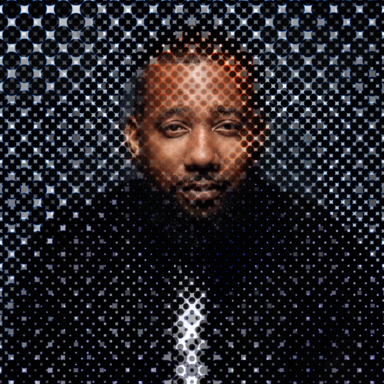The Next Frontier
By Yash Egami on Feb 21, 2011
 Every so often, advertising comes back as a newer, improved version of itself. Television soap operas are back in the form of branded entertainment. Guerilla marketing is now experiential advertising. And product development involving agencies, which goes back to JWT inventing the grilled cheese sandwich for Kraft, is making a comeback, albeit in more sophisticated forms.
Every so often, advertising comes back as a newer, improved version of itself. Television soap operas are back in the form of branded entertainment. Guerilla marketing is now experiential advertising. And product development involving agencies, which goes back to JWT inventing the grilled cheese sandwich for Kraft, is making a comeback, albeit in more sophisticated forms.
AKQA, Pereira & O'Dell, R/GA, Droga5 and a handful of other shops have been getting involved in the product development side of things lately with varying degrees of success. The 2009 One Show Interactive Best of Show-winning Fiat: Eco-Drive enabled drivers to figure out how fuel-efficient their driving style was via a USB interface. Nike+ is a hugely successful product developed by R/GA where runners can interface their Nike shoes with their iPods and computers through a device. And Droga's "Millions" project with Verizon and the New York Department of Education involved a phone that limited students' usage during school hours and rewarded them with extra minutes for good attendance, behavior and good grades. While product development in advertising is still in its experimental stages, it shows promise as one of the growth areas for the industry.
"What this trend reveals is that the future for our industry is more than advertising," says Nick Law, chief creative officer at R/GA. "If our clients want us to help them sell more stuff in a commoditized world, we need to innovate and then communicate. It can be an uncomfortable position for agencies to be in, because it requires them to be as tapped into Silicon Valley as much as Hollywood. It's easy for a client from a marketing department to get excited about digital products, but harder for them to pull it off. It involves more experience and functions than they traditionally have control over. Even if a CMO manages to sell a product idea to the CEO or CTO, it's not like running a seasonal campaign; it requires a product manager's skill-set to sustain and grow it. Agencies and clients have to break down old marketing silos and foster more fluid and collaborative environments for product development to thrive."
 As technology evolves, using an agency's digital expertise to create brand extensions seems to be a logical next step. "Nike+ started really as an application online and has evolved to being a top-selling mobile application," explains Law. "We also shape the user experience of a physical product, like we did with Barnes & Noble's e-book reader, nook. The same is true for the many in-store retail interfaces we design. Our mobile and social teams are more and more being tasked with developing useful apps, like we did with Nokia viNe."
As technology evolves, using an agency's digital expertise to create brand extensions seems to be a logical next step. "Nike+ started really as an application online and has evolved to being a top-selling mobile application," explains Law. "We also shape the user experience of a physical product, like we did with Barnes & Noble's e-book reader, nook. The same is true for the many in-store retail interfaces we design. Our mobile and social teams are more and more being tasked with developing useful apps, like we did with Nokia viNe."
While Nike+ has been a hit from a sales perspective, having sold nearly 2 million units, and nook is poised for sucess, not all products are as ambitious. Some, like Carrots Beer, developed by Pereira & O'Dell in San Francisco for a clothing line, was created as an in-store promotional product to attract more male customers. Recently, the agency created the Pocket Vuvuzela for the iPhone, which is a virtual version of the plastic noise-making horn popularized in South Africa during the World Cup. While the app was not created for a specific client, according to the company, "it's just something we did because it was a good idea."
The ease of creating apps with existing in-house digital departments has led many agencies to test the product development waters. Most, like Droga5, which was founded on a non-traditional advertising model, are concentrating on products in digital form rather than physical products.
 "Ad people always dream about being the decision maker behind the product," says Ted Royer, executive creative director at Droga5. "No client! But I always found it funny when agencies want to go into production of a soft drink or something, they usually stumble upon really finding out just how much of a pain in the ass developing something like that is. Most of us got into advertising because we have short attention spans—producing and sustaining a product takes huge commitment and time lines."
"Ad people always dream about being the decision maker behind the product," says Ted Royer, executive creative director at Droga5. "No client! But I always found it funny when agencies want to go into production of a soft drink or something, they usually stumble upon really finding out just how much of a pain in the ass developing something like that is. Most of us got into advertising because we have short attention spans—producing and sustaining a product takes huge commitment and time lines."
But when it comes to digital products, his agency is moving at full speed ahead.
"We have a couple digital properties that are about to launch which we are pretty excited about," reveals Royer. "One is an app basically meant to entertain, the other is a digital property we hope has a very long life in the public consciousness. Digital seems to be the way in—we already have digital production capabilities and knowledge, why wouldn't we flex those same muscles for our own product ideas occasionally?"
Related
Walter T. Geer III: "DEI Is Dead"
VMLY&R Health exec explains how the industry dropped the ball on diversity
To AI or not to AI?
ADC 101+1 designer shares his experience experimenting with AI
Shaking Up Is Hard To Do
Critical Mass exec + One Club Member Grant Owens navigates us through change in tumultuous times
Unapologetically Hispanic
Our very own One Show Director speaks about Hispanics within the advertising industry and beyond



